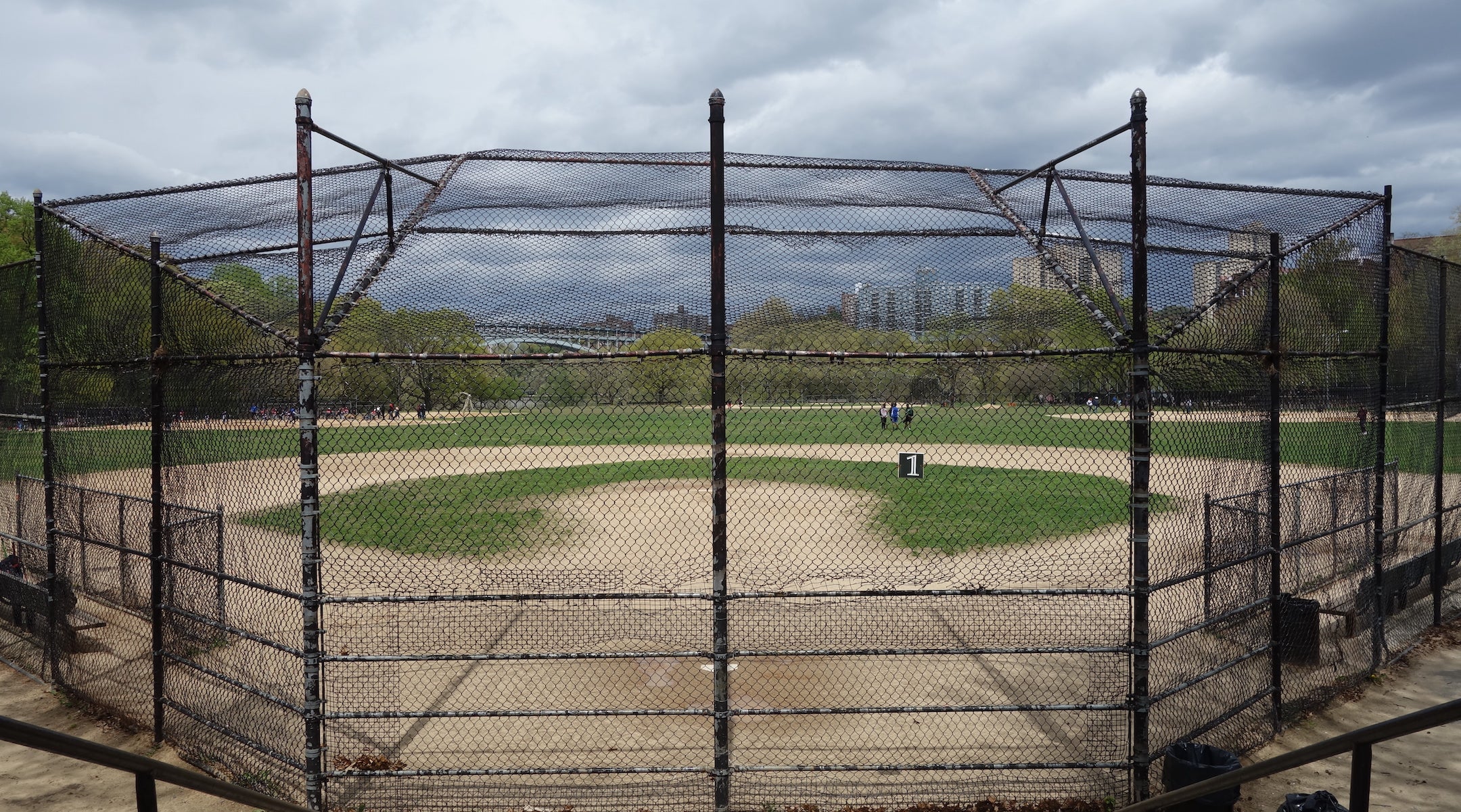After 15 years in the minor leagues of Israel’s sports hierarchy, baseball and softball are finally getting some respect.
While Little League will probably never be as popular in Israel as soccer or basketball, more and more kids are showing up for batting practice than ever before. And, though not quite as popular as its younger counterpart, adult softball is also gaining momentum.
Fifteen years ago, a bunch of North American immigrants here decided to get together once or twice a week and play a few leisurely games of softball in the park. There were no sponsors, no budget and hardly any equipment.
Today, the Israel Softball Association, with a budget of about $50,000, boasts 21 adult teams, which are sponsored by small businesses in the community. They compete according to a strict schedule, and travel around the country for “away games.”
Little League baseball has proved even more popular. Established just six years ago, the Israel Association of Baseball has 70 teams, with more joining the ranks all the time. To date, there are no organized baseball games for the over-18 set.
Though many of the teams resemble the Bad News Bears – at least until the kinds, 90 percent of whom were born in Israel, learn the difference between a foul ball and a home run – some are competing on the international level. Last year, Israel’ s Little League team placed third in the Maccabiah games.
Organizers attribute baseball’s local success to a variety of factors. These include the Little League’s strong Maccabiah finish and the fact that American baseball is finally getting some air time on Israeli television, thanks to the introduction of a cable sports channel a few years ago.
A third factor is funding. Until two years ago, baseball received virtually no government funding, and nothing at all from the country’s popular sports lottery. The Sport Toto, as it is known, distributes tens of millions of shekels to sports facilities and teams throughout Israel.
Until recently, the vast majority of that money went directly to soccer and basketball. Feeling disenfranchised, a group of “orphan” sports joined together and sued the Sport Toto. They won, and the baseball association was a warded an annual budget of $125,0000.
The remainder of the Little League budget of $167,000 comes from the Ministry of Education, Culture and Sport, corporate sponsors (often a pizzeria, insurance company or clothing store), and players’ membership dues.
As important as the money is, say organizers, it is just a drop in the proverbial bucket. “Things are a lot better than they used to be, but we’re still incredibly short of funds,” said Arthur Lenk, chairman of the softball association and a baseball association board member.
“At least today we have enough money to buy some equipment, but there’s still a need for decent playing fields and better equipment,” he said.
Asked where additional funding might come from, Lenk said he’d like to find an overseas donor. “We’d like to find someone in America who loves Israel and baseball, someone who would like to make quality baseball a reality in Israel.”
In truth, the playing fields and equipment at both Little League and softball games are woefully inadequate, with the exception of a state-of-art field at Kibbutz Gezer, outside Jerusalem.
A recent Little League game for 8-to 10-year-olds would have made American baseball fans shudder. The game was played on a patchy grass field with camel- like humps and lumps. Except for T-shirts provided sponsors, most of the players lacked basic equipment like helmets and cleats.
The kinds – both boys and girls – didn’t seem to mind, though, Having been born in Israel, most had never seen a real baseball field. They didn’t know that real fields have baselines and pitching mounds. Some didn’t even know the most rudimentary rules of the game. Despite this, they were in high spirits.
“You should have seen these kids a few weeks ago, at the beginning of the season,” said one American-born mother, who had come to watch her daughter play third base. “They didn’t know how to bat or which hand to put a glove on. But they’ve improved a lot in no time.”
Comparing Israeli Little League with that of its American counterpart, the mother said, “Unlike America, there’s no cutthroat attitude. Parents don’t yell if their kids make a mistake. In fact, everyone cheers everyone else on, regardless of the team they’re playing on. We stress sportsmanship and fun.”
The same can be said of the adult softball players, who meet on Friday afternoons and some evenings (like the Little League, no games are played on Shabbat).
At a field behind the Jerusalem YMCA, players put fun before competition. Sweaters served as baselines, and balls lost in the knee-length weeds were ruled out of play.
“I really need to get out and play,” said Joel Greenberg, a correspondent for the New York Times. “It’s a real break from my work – a necessary change of gears.”
As hard as the players try to stick to schedule, it isn’t always easy. Virtually all players must serve a month of reserve army duty, which takes them a way from home, and softball, for weeks at a time.
The political situation can also affect play. “I’ve been very, very busy since the Hebron massacre,” said Greenberg. “I had to miss a game or two to cover the story.”
The Archive of the Jewish Telegraphic Agency includes articles published from 1923 to 2008. Archive stories reflect the journalistic standards and practices of the time they were published.




